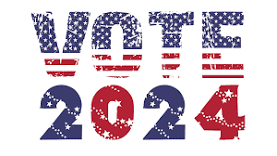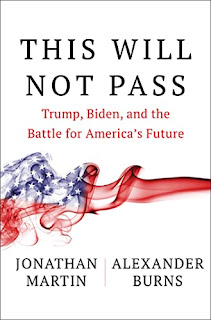Probably everything that needs to be said about the Iowa Caucus results has already been said – multiple times. And there are, of course, so many things which one can say. Personally, I think one of the best summations of what Iowans were saying on Monday was Sohrab Ahmari’s short Compact column Tuesday morning, « Left-Behind America Sticks with Trump. » There Ahmari argued: « Small-town Americans without a college education—those left behind by the economic transformations of the past two generations and plunged into an abyss of material insecurity—are sticking with their man: Donald J. Trump. Neither the allurements of a “responsible Trump” (Ron DeSantis) and a female George W. Bush (Nikki Haley) nor the prosecutorial pressures exerted by the establishment sufficed to overcome their gut preference. Everything else is minor details. »
I’m not sure about his last point. I think nostalgia is an important element – nostalgia for 2019, nostalgia for the way things were back before the pandemic, before the post-George Floyd « racial reckoning, » before the Ukraine war and the Israel war, and before what appears to be an unprecedented surge in immigration at the southern border. If life felt better back then, maybe that means it really was better back then, and maybe that means it will become better again after a Trump restoration. Really? Actually, I think that nostalgic recollection amounts to a false reading of recent history, but I cannot deny that it is a widely experienced memory for far too many voters.
That said, Ahmadi’s basic argument appears to hold. (That argument does not, per se, contradict the nostalgia argument and may reinforce it, insofar as the voters he is describing are likely also to be the most nostalgic.) But the main point that needs to be absorbed from Ahmari’s analysis is not just what we already knew – what The NY Times Nate Cohn calls « an extraordinary educational divide.” Nikki Haley’s Wall Street Journal appeal reflects and confirms that divide, with which we should by now have long been familiar.
The main point to be absorbed, however, which is one which Trump’s opponents seem so ill disposed to accept (or even try to understand) is that Trump’s populism has succeeded because it functions as an affirmation of those deplorables whom elites prefer to disdain. In this, I am reminded of something British scholar Paul Collier wrote in 2018: « If the educated see themselves as different from the less educated, and with diminished responsibility towards them, those others would be foolish to continue to trust them as much as when they knew that everyone had the same salient identity » (The Future of Capitalism: Facing the New Anxieties, Harper, p. 55, emphasis added).
Consequently – back to Ahmari – what Trump’s « populist challenge calls for is more, not less democracy. There is no prosecutorial shortcut around offering a broad and inclusive vision of political-economic reform—and actually listening to what the malcontents want. »





